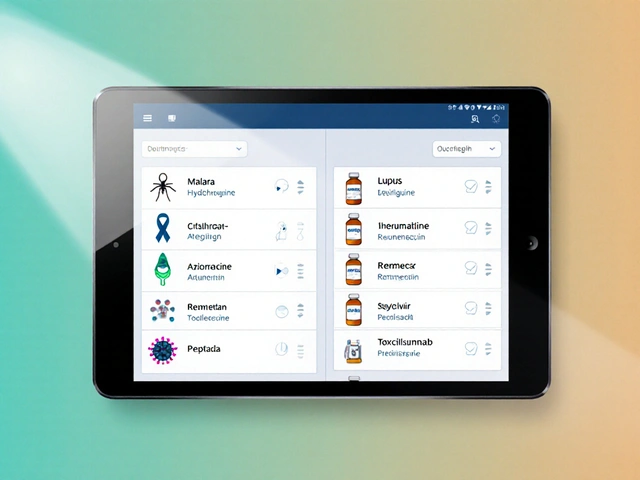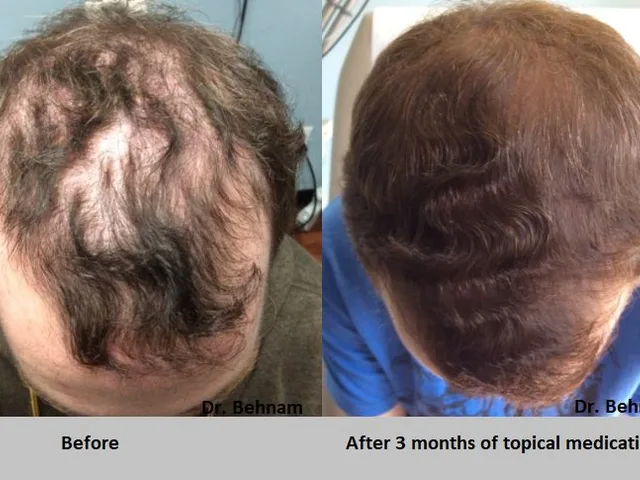IBS treatment: Practical steps to feel better fast
IBS can ruin a day with sudden cramps, bloating, diarrhea or constipation. You don’t need complicated tests to start feeling better. This page gives clear, useful steps you can try right away—food changes, small habits, and when to use medicines or seek help.
Daily self-care that actually helps
Food matters more than you think. Many people get relief on a low-FODMAP plan: cut common triggers like garlic, onions, wheat, apples and some dairy for 2–6 weeks, then reintroduce items one at a time to spot your triggers. If constipation is your main issue, add soluble fiber such as oats or psyllium, but increase it slowly to avoid extra gas. For diarrhea, avoid greasy meals, too much caffeine, and sugar alcohols like sorbitol.
Move your body a bit every day. A 20–30 minute walk or gentle yoga improves bowel movement and lowers stress. Sleep on a regular schedule—poor sleep makes IBS worse. Use simple stress tools: 5 deep breaths, a short guided meditation, or a 10-minute walk when symptoms flare.
Probiotics can help some people, especially those with bloating or irregular stools. Look for products with Bifidobacterium or multispecies blends and try one for at least 4 weeks while noting results. If nothing changes, stop and try a different approach.
When medicines, therapy, or tests make sense
Over-the-counter meds are a quick fix for specific problems: loperamide for short-term diarrhea control, polyethylene glycol for constipation, and antispasmodics for cramps. If symptoms persist, doctors may prescribe targeted drugs like rifaximin for certain bloating cases, lubiprostone or linaclotide for chronic constipation, and eluxadoline for diarrhea-predominant IBS. Low-dose antidepressants (TCAs or SSRIs) often reduce pain by changing gut-brain signals.
Therapy helps more than you’d expect. Cognitive behavioral therapy (CBT) and gut-directed hypnotherapy teach ways to reduce symptom severity and improve coping. These approaches change how your brain and gut talk to each other—real, measurable benefits.
Keep an eye out for red flags: unexplained weight loss, blood in stools, high fever, or new symptoms after age 50. Those need prompt medical evaluation. Also be cautious buying prescription medicines online—use licensed pharmacies and keep your doctor informed.
Simple tracking pays off. Keep a food and symptom diary for 2–4 weeks to spot patterns. Try one change at a time and give it enough time to work. If lifestyle adjustments don’t bring steady improvement, see a clinician who treats gut disorders. They’ll match tests and treatments to your specific IBS type—diarrhea, constipation, or mixed—and help you get control back.

Irritable Bowel Syndrome is caused by a breakdown in gut-brain communication, not just digestion. Learn how diet, hypnotherapy, and new medications target the root cause for real relief.
Chris Gore Nov 10, 2025
Struggling with the cost of Xifaxan for IBS? This article digs into rifamycin class drug options, insurance strategies, and patient-assistance hacks to help cut your out-of-pocket spending. You’ll find practical advice, real-world tips, and learn about programs that actually work. Get clear, actionable information about finding affordable antibiotics for IBS. Don’t settle for high prices—or less effective treatment. Start saving (and feeling better) today.
Chris Gore Apr 30, 2025



